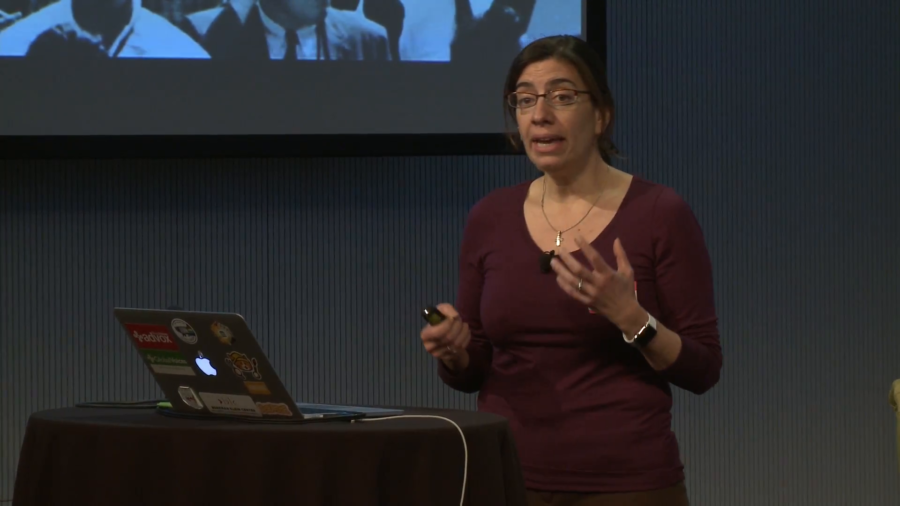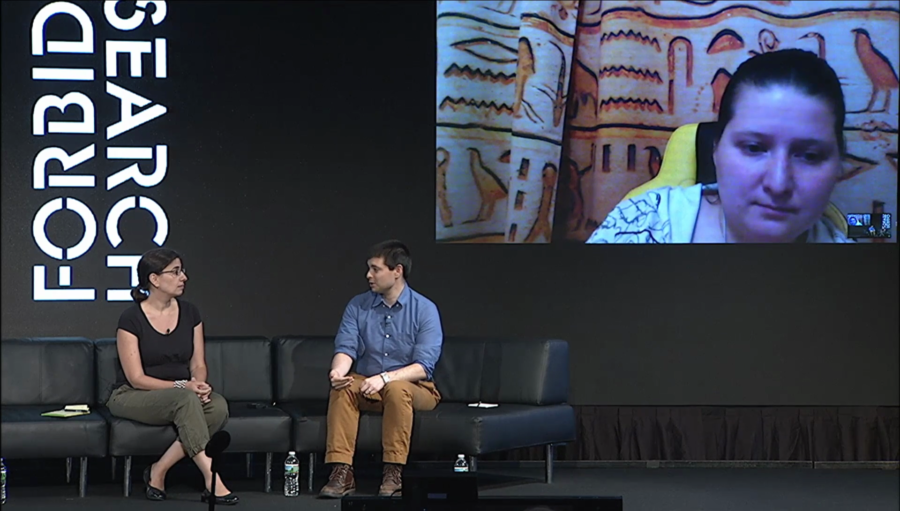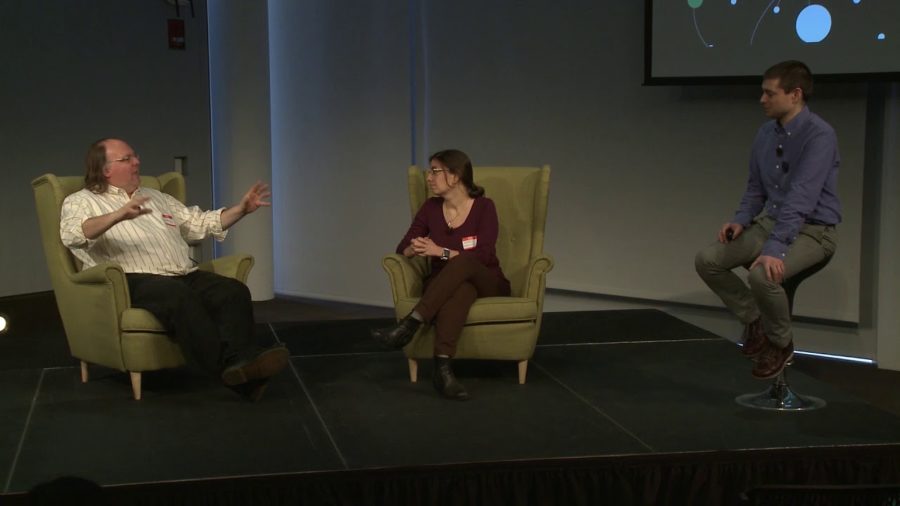One of the things I found interesting about both of your conversations is that as we start to see code becoming a powerful force in society, we’re no longer just trying to change laws but we find ourselves—just as we’re citizens trying to encourage the government or congresspeople to change laws—we’re now standing outside of companies saying well, there’s code that affects our lives.
Karrie Karahalios

By using these tools like the sockpuppets, and scraping, and using bots, and using APIs, we can look at a site for housing and maybe try to figure out if some discrimination is happening. Are these homes prioritized differently for different people based on their age, on their sex, and so forth? And it’ll help us actually understand why some of this might be happening.

Quite often when we’re asking these difficult questions we’re asking about questions where we might not even know how to ask where the line is. But in other cases, when researchers work to advance public knowledge, even on uncontroversial topics, we can still find ourselves forbidden from doing the research or disseminating the research.

